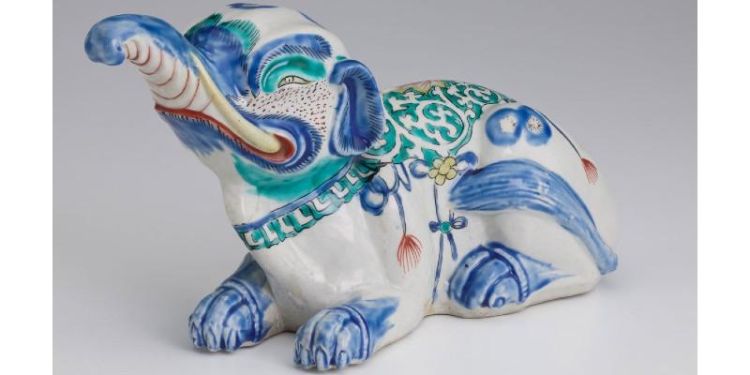Professor Mark Westgarth to address provenance research approaches at international webinar

Professor Mark Westgarth is one of four experts taking part in an online webinar organised by the Smithsonian Institution and the Stiftung Preußischer Kulturbesitz (SPK).
In Unpacking Provenance on 15 July, a panel of four experts will discuss a Kakiemon model of an elephant from the collections of the National Museum of Asian Art (NMAA), focusing on provenance research approaches and resources.
Manufactured in seventeenth-century Japan, this porcelain elephant likely arrived in Europe as cargo on a Dutch East India Company trading vessel.
In examining this object, panellists will articulate research questions, brainstorm approaches, and discuss methods to track down answers about both the object’s journey and the life histories of the individuals who encountered it.
Mark Westgarth is Professor of History of the Art Market in the School of Fine Art, History of Art and Cultural Studies and founder/Director of the Centre for the Study of the Art and Antiques Market at the University of Leeds.
Mark’s research interests are focused on the history of the art market, the history of antique dealing and collecting, particularly the agency and social and cultural identity of the dealer in the 19th and 20th centuries.
He is the author of several books on the history of the antique trade and has curated several exhibitions, including SOLD! The Great British Antiques Story at The Bowes Museum in 2019.
Mark said:
“Provenance research has developed and expanded rapidly over the past few years, as museums, collectors and the wider art market become more conscious of the importance of understanding the history of artefacts and their contexts.
“I am delighted to be part of this international panel demonstrating how provenance research, focused on just a single artefact, can illuminate our understanding of how and why artefacts are put into motion, and where and why they come to rest.”

Bluett & Sons, dealers in Chinese works of art, shop interior, Davis Street, London, 1926. Photograph courtesy of Dominic Jellinek.
Other panellists for Unpacking Provenance: A Kakiemon Model of an Elephant include Martha Chaiklin (Independent Scholar), Menno Fitski (Rijksmuseum, Netherlands) and Sol Jung (National Museum of Asian Art, Washington DC).
The discussion will be facilitated by Joanna M. Gohmann (National Museum of Asian Art) and Christine Howald (Zentralarchiv/Museum für Asiatische Kunst, Staatliche Museen zu Berlin).
Unpacking Provenance is part of a larger collaboration between the Smithsonian Institution and the Stiftung Preußischer Kulturbesitz that seeks to cultivate the global network of provenance researchers and promote exchange.
The online series Unpacking Provenance: Retracing the Histories of Asian Art brings together cross-disciplinary specialists to explore provenance research processes and share resources. Discussions focus on a single object, exploring a variety of innovative, strategic and collaborative approaches to inquiry.
More information
Unpacking Provenance: Retracing the Histories of Asian Art takes place on 15 July from 17:00 to 18:15 (GMT+1 / UK time). This online event is free but booking is essential.
Find out more about the participants for Unpacking Provenance and register to attend.
Feature image
Kakiemon model of an elephant; Japan, Saga prefecture, Arita, Nangawara Kakiemon kiln, late 17th century; porcelain with enamels over clear colorless glaze; National Museum of Asian Art, Smithsonian Institution, Gift of Drs. Avril and Andrew Somlyo, S2023.10.6. Image used with permission from Smithsonian Institute.




